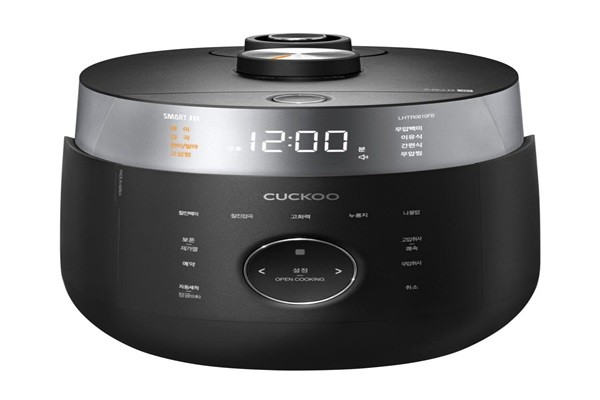South Korean kitchen appliances companies are having success entering the Chinese market despite the COVID-19 pandemic. They are gradually expanding their market shares as they are now ranked fourth out of imported brands based on market shares.
As more Chinese consumers look for healthier eating habits, South Korean companies are expecting that they will be able to achieve success within the Chinese market continuously as China’s kitchen appliances market is now worth $58.5 billion (70 trillion KRW).
According to a Chinese industry research institute called Qianzhan Industry Research Institute, China’s small home appliances market was worth $56.9 billion (68.1 trillion KRW) in 2019. Out of this worth, small kitchen appliances were responsible for about 42%.
Kitchen appliances have established themselves as a culture that shows a household’s economic and cultural levels in China. According to Qianzhan Industry Research Institute, people who were in their 20s and 30s were the main buyers of small kitchen appliances. Also, most of appliances were purchased by consumers who live in big cities such as Beijing, Shanghai, and Guangzhou.
Most of the small kitchen appliances market is owned by Chinese brands. When it comes to imported products, most of them came from European brands that are based in France (44%), Germany (20%), and Spain (2%). Some of them also came from Asian brands that are based in Japan (14%) and South Korea (8%).
Despite a relatively low percentage, South Korean companies are continuing to grow steadily within the Chinese market and are gradually expanding their market shares.

Cuckoo Electronics announced that its first quarter sales increased slightly from its sales from the fourth quarter last year despite the COVID-19 pandemic.
Cuckoo Electronics have established it self in 800 stores in China and is increasing sales of premium products that are “made in South Korea”. It introduced models with Chinese audio guidance system and is pushing a porridge manual that suits Chinese consumers. It also established twenty-four after-service networks and it continues to strengthen its online business. A spokesperson for Cuckoo Electronics stated that the company continues to make positive performance by setting up stores within Tmall, Taobao, and Suning.
“We have increased the number of our stores in China to eleven and we are currently operating stores within well-known department stores.” said a representative for Cuckoo. “We are planning to increase the number of our offline stores as well.”
Cuchen is growing its business in China by selling premium rice cookers and sterilizers for feeding bottles.
Its sterilizers are currently sold by JD.com and premium baby product stores located inside of major department stores such as MIXC Shopping Mall and Wanda. These stores are located in major cities such as Shanghai, Beijing, Shenzhen, Guangzhou, Chengdu, Wenzhou, and Hangzhou. Its rice cookers are currently sold by Tmall and JD.com.
Hurom has been growing its business in China by establishing a corporation in Shanghai last year. It is understood that its sales this year are higher than that of last year as it has been focusing on its new online channel for Chinese consumers. During China’s 618 Festival, which is the China’s second biggest shopping season after Chinese Black Friday, Hurom had sold 10,000 juicers. 60% of them are Hurom’s new products for this year.
“As Chinese consumers have been focusing more on healthy diet since the outbreak of COVID-19, there will be more demands for smart small kitchen appliances moving forward.” said a representative for the industry. “Although Chinese brands still dominate the market, South Korean companies are still highly interested in the market as Chinese consumers still have a high level of preference over premium products from South Korea.”
Staff Reporter Park, Sora | srpark@etnews.com